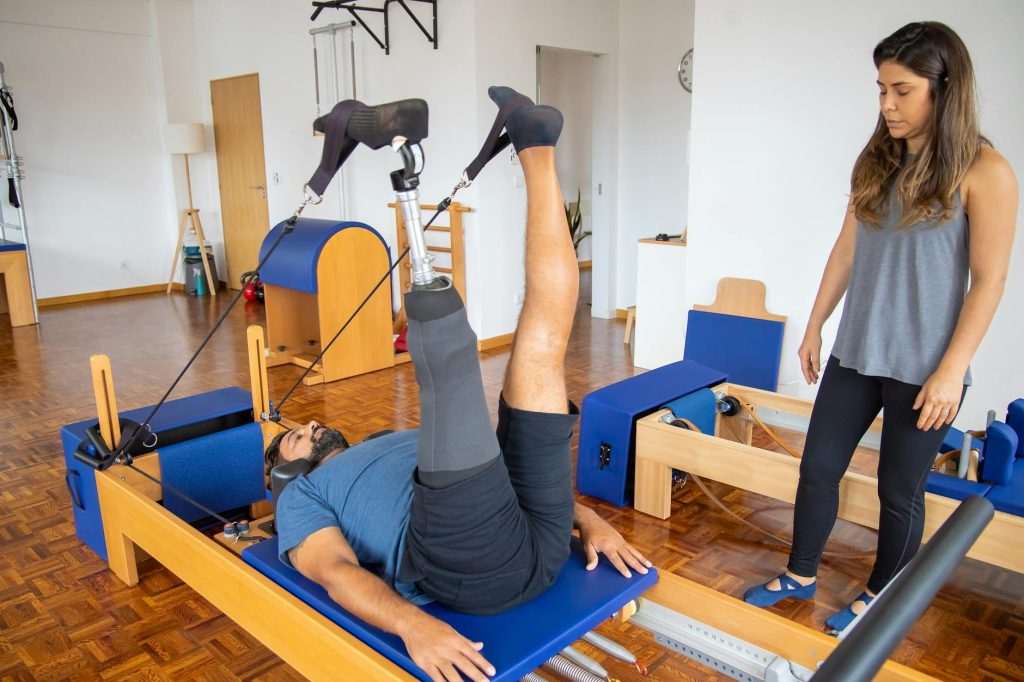Recovery is not just about putting down substances or managing symptoms of trauma and mental health. True recovery is about building a meaningful life worth staying present for.
Therapy and medical care address the roots of addiction and emotional struggles, but many people in recovery also need practical guidance—tools to manage daily responsibilities, discover passions, and move toward career or academic success.
This is where coaching in recovery comes in. From executive function support to life skills training and vocational coaching, recovery coaching helps individuals take confident steps toward rebuilding their futures.
What Is Recovery Coaching?
Recovery coaching is a supportive, goal-oriented process that empowers individuals to create and sustain healthy, fulfilling lives. Unlike therapy, which often explores the past, coaching is focused on the present and future.
A recovery coach works alongside clients to:
- Build confidence in everyday decision-making
- Identify strengths and areas for growth
- Set realistic goals for personal, academic, or career life
- Create accountability structures to stay on track
- Provide encouragement, feedback, and practical strategies
Coaches are not a replacement for therapy or medical care, but they complement these services by bridging the gap between healing and real-world application.
The Role of Coaching in Recovery
Recovery is full of transitions—leaving treatment, starting work again, rebuilding relationships. These transitions often reveal challenges like:
- Poor time management or disorganization
- Difficulty with planning or prioritization
- Lack of clarity about career direction or life purpose
- Low confidence after years of struggle
- Stress navigating school, work, or family expectations
Coaching addresses these issues with hands-on tools to help individuals succeed beyond the therapy room.
Types of Coaching in Recovery
Executive Function Coaching
Executive function skills are the brain’s “management system”—responsible for focus, organization, planning, and follow-through.
Many people in recovery struggle with executive function due to:
- The impact of substances on brain functioning
- Co-occurring conditions like ADHD or trauma
- Years of instability disrupting healthy routines
Executive function coaching helps clients learn to:
- Manage schedules and responsibilities
- Break tasks into achievable steps
- Build systems for accountability
- Strengthen focus and follow-through
- Reduce procrastination and overwhelm
This type of coaching is especially beneficial for students, professionals, or anyone trying to build consistency after chaos.
Life Skills & Purpose Coaching
Recovery often requires relearning the basics of daily living—while also discovering deeper meaning in life.
Life skills coaching focuses on:
- Budgeting and financial management
- Meal planning and nutrition
- Healthy routines and self-care practices
- Social skills and relationship building
Purpose coaching goes further, helping individuals explore values, passions, and the bigger question: “What do I want my life to stand for?”
This combination grounds recovery in both practical skills and deeper motivation.
Career or Academic Coaching
Returning to school or work after recovery can feel intimidating. Career and academic coaches help bridge the gap by:
- Identifying strengths, talents, and interests
- Building resumes and job application skills
- Preparing for interviews with confidence
- Navigating workplace challenges while maintaining recovery
- Supporting academic planning, study habits, and test preparation
This form of coaching empowers individuals to not only re-enter the workforce or school, but thrive in it.
Vocational Coaching
For those unsure of their career path, vocational coaching helps clients explore practical opportunities that align with their skills and recovery needs.
Vocational coaches guide individuals through:
- Career assessments and exploration
- Job training programs or certifications
- Balancing work with recovery responsibilities
- Setting realistic, achievable career goals
- Finding meaning and stability in work life
This kind of coaching is particularly important for people rebuilding financial independence.
Recovery Coaching
In addition to these specialized areas, many people benefit from general recovery coaching. These coaches focus specifically on sobriety maintenance, relapse prevention, and lifestyle stability.
Recovery coaches provide:
- Relapse prevention strategies
- Support navigating triggers and cravings
- Accountability for daily choices
- Encouragement during setbacks
- Connection to resources like peer groups and community programs
While therapy addresses emotional healing, recovery coaching keeps clients focused on day-to-day resilience.
How Coaching Complements Therapy
Coaching is not a substitute for therapy. Instead, the two work best together.
- Therapy helps clients heal trauma, understand emotional struggles, and process the past.
- Coaching helps clients apply that healing to everyday life—turning insight into action.
For example:
- A therapist may help a client uncover the root of their anxiety.
- A coach helps them create a daily schedule, breathing practice, or goal plan to manage it at work.
Together, therapy and coaching provide both the why and the how.
Benefits of Coaching in Recovery
- Increased confidence: Clients learn they can handle challenges.
- Better organization: Clear routines reduce stress and prevent relapse triggers.
- Goal achievement: Clients gain practical tools to follow through on dreams.
- Accountability: Regular check-ins help maintain momentum.
- Stronger identity: Beyond “staying sober,” clients explore who they want to become.
Coaching as Relapse Prevention
Relapse often occurs when life feels overwhelming. Stress, disorganization, or lack of purpose can trigger old habits. Coaching helps prevent relapse by:
- Stabilizing routines
- Offering concrete problem-solving strategies
- Building a sense of direction and hope
- Encouraging consistent progress
When combined with therapy, coaching creates a strong safety net.
What a Coaching Session Looks Like
Coaching is typically structured, practical, and forward-focused. A session may include:
- Reviewing progress toward goals
- Exploring current challenges
- Brainstorming solutions
- Creating an action plan for the week
- Providing motivation and encouragement
Unlike therapy, sessions may feel more like a strategic planning meeting—with compassion at the core.
Is Coaching Right for You?
Coaching may be especially helpful if you:
- Feel overwhelmed managing daily life after treatment
- Want support pursuing career or academic goals
- Struggle with organization or focus
- Need accountability and encouragement to stay on track
- Are searching for deeper purpose in recovery
If these resonate, coaching can be the missing piece in your recovery plan.
The Bottom Line
Recovery is not only about healing from the past. It is also about building a future. Coaching helps individuals turn recovery into growth, purpose, and success.
Whether it is executive function coaching, vocational support, life skills coaching, or career guidance, the right coach can empower you to create the life you want—step by step.
Taking the Next Step
At TruPaths, we highlight recovery programs that offer both therapy and coaching. Because we believe lasting change requires not only healing the past but also building skills for the future.






